The Rare Disease Crusaders
A feature about our FOXG1 Research CEO and Co-founder Nasha Fitter from the Ciitizen Blog…
My daughter was seven months old when she had her first seizure. It scared me to death, and her spells would continue for months until we discovered the reason:
she suffers from a severe and rare neurodevelopmental disorder called FOXG1 syndrome.
It wasn’t until weeks after her diagnosis that I found the courage to go online and read about the condition: due to a genetic protein deficiency children experience severe intellectual disability, epileptic symptoms, and many never walk or talk for their entire lives.
I vomited immediately after reading that.
The subsequent months were full of terror and grief, but eventually my sadness evolved into determination and I took action, joining a group of parents like me who were piggybacking on a wave of scientific progress to find cures for their children’s rare disorders. Today, we call ourselves the Rare Disease Crusaders.
Considering the amount of energy and campaigning required to find answers for our kids, I think “crusader” sums up our struggle quite accurately. We have become de facto pediatricians, neurologists and scientists, as many doctors have never heard of FOXG1. We have developed mouse models, learned how to turn skin cells into neurons and spoken directly with biopharma about gene and antisense therapies.
Yet, no matter how much we learn about our children, we’re lacking the one informational resource that can actually move the needle in transforming their lives: aggregated clinical data.
Computational data is the key to medical research. Without it, no biotech company will invest the time or the money to find therapies for our children, and we have neither the time nor the capacity to keep educating the medical industry on our own.
Having spent the majority of my career in tech, I am still fairly confused as to why healthcare operates in the dark when so many other industries have successfully used data to solve major problems. I don’t understand why our neurologist doesn’t have access to a database of medications for FOXG1 patients around the world. I’m terrified by the fact that she is making decisions for my child and prescribing her heavy antipsychotic drugs based on a limited experience from treating two other FOXG1 children.
Research is also failing us. Natural History Studies—when researchers collect clinical information on a group of patients and use that data to inform drug development—are done in a completely archaic manner. If we are lucky enough to find someone who has spent the millions of dollars necessary to sponsor a Natural History Study for our specific disease, we then have to fly or drive our medically fragile children to a few select academic institutions that may or may not be anywhere near our home.
Once there, they ask us the same questions that we answer for our local neurologists every few months. Once we’ve given them our information, neither they, nor our biopharma partners, can access the aggregated data we need to improve research because many of these institutions don’t share.
But given that every patient has a right to their own medical data, there’s a solution right in front of us: we take control of our own medical records and share them to create the database we need.
I joined Ciitizen and initiated our entry into neurological diseases because I am both passionate and desperate to find an answer for my daughter. At Ciitizen, we’re creating a platform where medical records are collected on behalf of each patient, then automatically digitized into the computational data we need. From there, sophisticated machine learning technology is used to extract clinical data in order to create regulatory-grade Natural History Studies that do not require exorbitant amounts of time, energy, or money. Patient reported outcomes can then be added by us parents.
More importantly, this database of computational data we’re creating will be accessible and open to all patients, parents, caregivers, clinicians, academics, and biopharma researchers. Our goal is to eliminate the slow, manual, and expensive processes that we currently use to collect information and use the best technologies to be quick, cost-effective and more accurate when it comes to developing research.
I am eager for the day I can search this database for “movement disorder” and find exactly what medications other FOXG1 children and children affected by similar neurodevelopmental disorders are using, and which are most effective. I am eager for my fellow Rare Disease Crusaders to tell biopharma there is a platform available where they can easily access Natural History Studies, and clearly see that our diseases are worth investing in.
At four years old, my daughter is still completely non-verbal. I’m hoping I can one day hear her speak. Only in my dreams does she come up to me and say, “Mama, I love you.”
Nasha Fitter leads the rare and neurological initiatives for Ciitizen and is the CEO of the FOXG1 Research Foundation (http://foxg1research.org)

